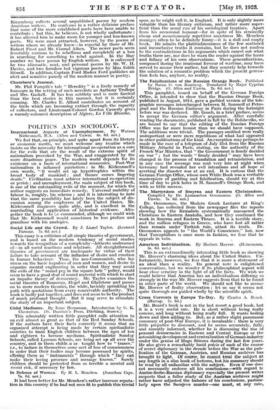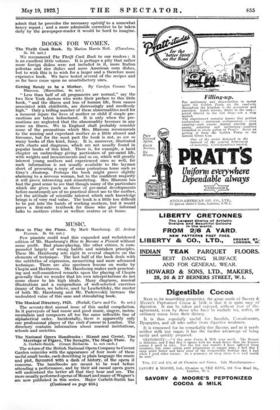Cross Currents in Europe To-Day. By Charles A. Board. (Harrap.
7s. 6d.)
Mr. Beard's book is not in the last resort a good book, but it is a very useful one. He is short without being really concise, and long without being really full. It wants boiling down and then adding to. But, as a rather slight panoramic summary of post-War Europe, it is invaluable : there is very little prejudice to discount, and he seems accurately, fully, and recently informed, whether he is discussing the rise of peasant democracies in Eastern and Central Europe or the astonishing development and centralization of German industry under the genius of Hugo Stinnes during the last few years. He also gives a remarkably lucid prim of such of the course of secret diplomacy in the decade before the War as the pub- lication of the German, Austrian, and Russian archives has brought to light. Of course, he cannot treat the subject at any length in a slim book of lectures, but his summary should be read by all unfamiliar with the subject. Even if one does not necessarily endorse all his conclusions—with regard tc Austin-Serbo-Russian diplomacy especially the present writer suspects that a fuller study of the Austrian archives might rather have adjusted the balance of his conclusions, partieu- larly upon the Sarajevo murder—one must, at any rate,
admit that he provides the necessary apiritif to a somewhat heavy repast ; and a more admirable corrective to be taken daily by the newspaper-reader it would be hard to imagine.











































 Previous page
Previous page